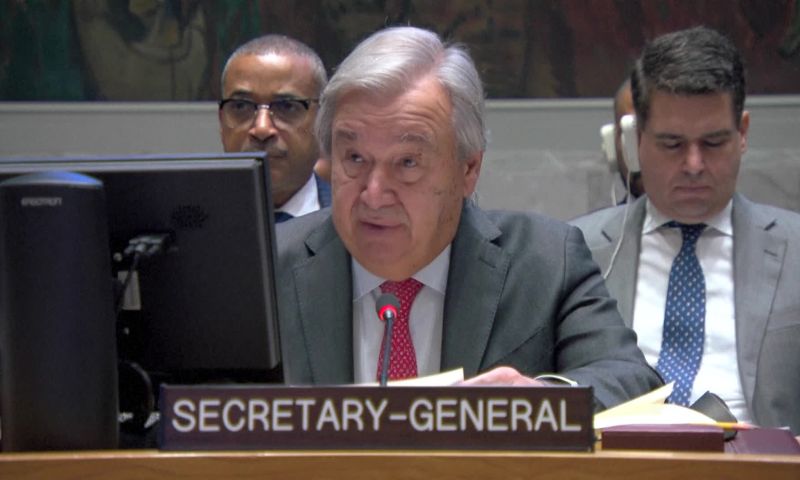UNITED NATIONS: UN Secretary-General Antonio Guterres on Thursday urged world leaders to demonstrate greater “vision” and “courage” in their approach to the future, as a crucial Summit of the Future to address the threats and opportunities of the coming years nears.
The summit, scheduled for September 22, will convene all 193 UN member nations to adopt a key pact aimed at shaping the future of global governance.
Guterres, who first proposed the Summit of the Future in 2021, emphasized the urgency of the situation in a video statement released Thursday. His appeal came ahead of a virtual event marking 10 days until the summit, where he underscored the need for ambitious reforms and meaningful actions in the face of emerging global threats.
“Despite the intense negotiations, the latest draft text of the pact has been criticized for lacking ambition,” Guterres said. “My appeal is for you to push hard for the deepest reforms and most meaningful actions possible. We need maximum ambition during these final days of negotiation.”
The Secretary-General highlighted several existential threats that the world faces, including climate change, the ethical and legal challenges posed by artificial intelligence, and the dangers of nuclear proliferation. He also noted the failures of current international institutions to address these evolving issues effectively.
“Our institutions cannot keep up,” Guterres warned. “They were designed for another era and another world. The Security Council is stuck in a time warp, the international financial architecture is outdated and ineffective, and we are simply not equipped to tackle a wide range of emerging issues.”
Guterres called on UN member states to act with “vision, courage, solidarity, and a spirit of compromise” to finalize the three draft agreements under discussion. These drafts address critical areas including multilateralism, the need for reform in international financial institutions and the UN Security Council, climate change mitigation, disarmament, and the development of artificial intelligence.
Chancellor Olaf Scholz of Germany, one of the facilitators of the negotiations along with Namibia, acknowledged the challenges but also noted some positive developments. “An overwhelming majority of countries in the world agree on the goals that humanity should be striving for: We want a world that is safe, peaceful, just, equal, inclusive, sustainable, and prosperous,” Scholz said.
The draft text includes approximately 60 proposed “actions” covering a broad range of issues. Scholz expressed hope that the pact could shift the narrative from division and polarization to one of cooperation and progress.
“The Pact offers us the chance to change the narrative of division, polarization, and uncertainty. It offers us the chance to show the world that cooperation still yields results. That multilateralism is alive,” he said.























